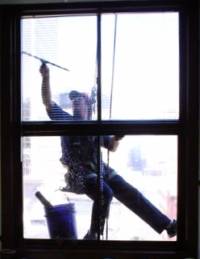In preparation for one of our spring masterclasses, I received a memo from one masterclass-giver’s management. Along with requests about using a smallish theater and making two pianos available on stage, there were stipulations about the music to be played in the masterclass by potential student performers: no music by Rachmaninoff, no music by Liszt. Certain pieces by J. S. Bach might be ok, with approval. Certain works by Schubert, Beethoven of course, some pieces by Debussy or Ravel. And nothing recent, definitely.

Was this idiosyncratic behavior? (Or charming?) An expert wanting to focus on what they can do best… But then there was a second memo, from another manager, about another masterclass being given by a different artist: no Rachmaninoff, no Liszt, perhaps music by J. S. Bach, but not the “Goldberg” Variations, nor the Art of Fugue… Coincidence? A trend? Maybe these were responses to some school’s all-Rachmaninoff-all-the-time masterclass programming?
But, the questions remain: In working with performers, in a lesson or in a master class, do we tell them what we know? Do we repeat the past, refining it a little along the way? Or is the class a joint exploration? A process of witnessing and mentoring a fellow musician’s engagement with a text, and grappling with artistic communication in the moment?

This is an interesting idea to ponder.
Speaking from the perspective of a graduating DMA about to embark on her first teaching job, my masterclass experience (teaching) is rather limited, but I recently confronted this issue head-on.
On a recent job interview I was asked on the spot to coach a student on two short pieces by Scriabin. I confess Scriabin’s music is one unfortunate place where my own repertoire list is a bit lacking, and I’ll admit to being nervous to coach rather unfamiliar repertoire.
That having been said, it turned out to be one my most exciting and rewarding teaching experiences. The student and I embarked upon a exploration together, experimenting with color, trying to assign shades (“crimson,” “sky blue,” “the palest of yellows”) to specific passages in the music. I think the student was particularly surprised at the difference it made in her playing in only a few minutes – she began to listen to her pieces in a whole new way. (I was also a bit taken aback by the dramatic change!)
If I had been given the option of repertoire to coach, Scriabin probably would not have been on my “list,” but I’m so glad I had this opportunity.
That having been said, I’m just starting my teaching journey. After many, many years of successful teaching, does a distinguished artist-teacher earn the right to pick and choose what he coaches in a masterclass?
Erin, I think you were right there, vers la flamme! And perhaps that really is where art takes place best.
Do artists earn the right to pick and choose? They seem to, but should they always exercise that right?